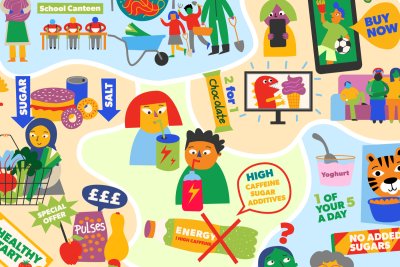The new campaign aims to greatly increase the amount of surplus food from supermarkets which is redistributed to Londoners who are struggling to eat enough.
The Standard has highlighted where these two objectives can overlap. For example, we know that many organisations working to address food poverty currently rely on supplies of surplus food, such as school breakfast clubs or school holiday lunch clubs. These interventions can not only meet immediate needs, but also alleviate pressures on already stretched family budgets, reducing stress and allowing households to address the underlying causes of their difficulties. We are alive to the risks which can come with food redistribution for example, being unsure of what food will be delivered and its nutritional content, as well as the need to promote end-users’ dignity and self-esteem. There is however good practice in managing these risks.
The Standard’s publication of a league table of supermarkets’ redistribution of surplus food should prove to be an effective way to promote transparency and promote action. It is also vital that supermarkets take genuine action to reduce the creation of surplus food within their stores and supply chain. Sustain member
Feedback has also reiterated some of the key actions which supermarkets can take towards this aim.
Measuring Food Poverty
The Standard also highlights the lack of a robust means of measuring the number of Londoners in food poverty, this includes not just those who are hungry, but those who are anxious about where their family’s next meal will come from or are forced to choose more filling, but less healthy meals. Sustain is working with academics, Oxfam, the Food Foundation and others to call on government to adopt
a systematic tool for measuring food insecurity, as well as supporting local areas to build this into local surveys.
It is important to be clear that the reduction and redistribution of surplus food and tackling food poverty are two distinct objectives. Surplus food is created by an industry that all too often focuses on the bottom line, rather than developing a more sustainable and less wasteful supply chain. Meeting the needs of hungry people requires food to be available on a crisis-level basis, but reducing food poverty in the longer term is about both maximising people’s income and addressing the non-financial barriers to accessing affordable healthy food. This can include promoting Healthy Start Vouchers to expectant mothers and families of young children, increasing the number of outlets selling affordable fresh fruit and vegetables in a given area or paying people at least the London Living Wage. Sustain will publish the second edition of its
London Food Poverty Profile in mid-November. This will set out the actions which London boroughs have taken to address the drivers of food poverty in the capital and where more action is needed.
To hear more about Sustain’s work on food poverty, please sign up
here.
Published Friday 23 September 2016
Food Poverty: Millions of people in the UK struggle to get enough to eat. We’re working to change that through people-powered projects and campaigns that tackle the root causes of food poverty and ensure everyone has dignified access to healthy, affordable food.





